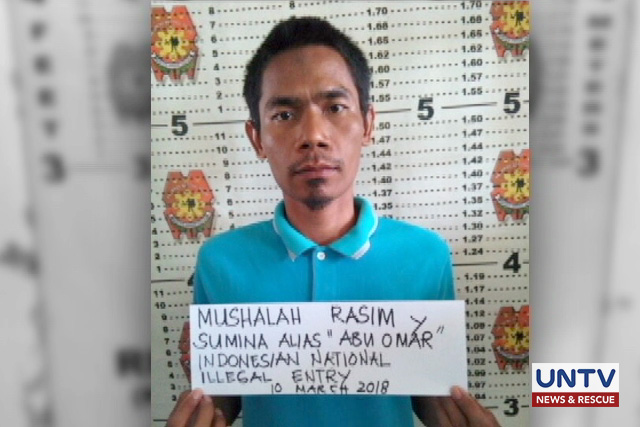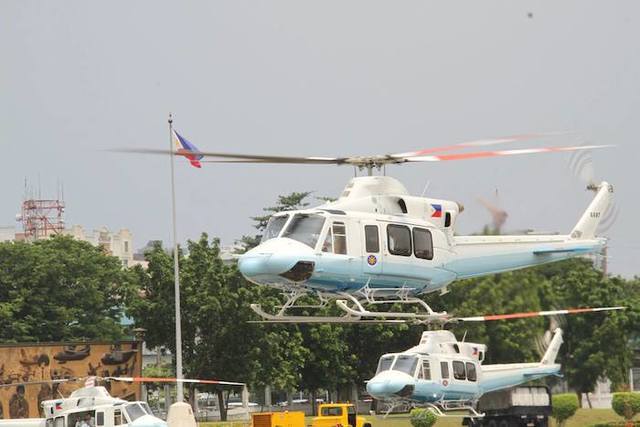From The Standard (Mar 26):
Sparu revival only a ploy, CPP warns
THE Communist Party of the Philippines on Saturday said President Rodrigo Duterte was creating another scheme to silence his critics with his claim that the infamous hit squad of the New People’s Army—“Sparu” or “Sparrow” unit—had been revived.
“It seems Duterte is doing some scenario-building to hatch up another tyrannical scheme,” the CPP said in a statement.
Earlier this month, Duterte warned soldiers against the supposed resurgence of the Sparrow Unit.
PNP chief Director-General Ronald dela Rosa also said the “Sparu” unit of the NPA boosted its operations against government forces after Duterte terminated the peace talks with communist rebels last year.
“The PNP’s plan to have a group of ‘seasoned retired police officers’ to train PNP field personnel on ‘anti-sparrow’ operations sound shady, to say the least,” it said.
Meanwhile, the military on Saturday claimed it had 28 leaders of the CPP-NPA who surrendered to security forces along with the seizure of at least 51 camps across the country as troops waged relentless anti-insurgency campaign during the first quarter of 2018 following the collapse of peace talks.In related developments:• The Armed Forces will continue implementing appropriate security measures to fully secure the country during the Holy Week despite the absence of major security threats against the annual religious observation.
“There is no specific threat monitored for the Holy Week but the AFP will not put its guard down. We will continue to conduct appropriate security measures where needed to safeguard vulnerable communities,” AFP spokesperson Brig. Gen. Bienvenido Datuin said in a text message to the Philippine News Agency on Friday.
He added the military would make appropriate deployment when and where the need arises.
“In every security measure, there will always be a gap that criminals and terrorists will pursue and take advantage of,” Datuin said.
And while the AFP does everything it can to protect the country and its people against all forms of threats, the military official said the help of the public in foiling lawless elements was always welcome.
“Again we recognize the importance of the help of our citizens and the community against the enemies of peace. We call on our people to be part of the security net to detect, deter and frustrate any move by criminals and terrorists,” he added.
• The National Capital Region Police Office has intensified crime prevention effort and deployed 11,800 policemen all over Metro Manila in connection with the country’s observance of Lent this week.
The authorities will be using deliberate, sustained police operations such as checkpoints, mobile and beat patrols supported by scientific crime reporting from the Community Precincts to the stations, to the districts up to the NCRPO headquarters.
NCRPO director Oscar Albayalde said more police personnel would be dispatched to secure orderly situation in bus terminals, airports and seaports and other crowded places such as shopping malls and other commercial establishments in Metro Manila.
“Aside from areas of public convergence, our policemen were also tasked to conduct patrols around communities to prevent burglars from entering houses left by families on vacation,” he said.
Lt. Col. Emmanuel Garcia, chief of the Public Affairs Office, said that most number of NPA surrenderers came from the Eastern Mindanao Command which accounted for 17 ranking leaders.
Garcia said the ranking NPA leaders included two amazons identified as Alvie Marie Cominador, alias Ara, 51, secretary of Guerillas Front; Shane Rosete Cacdac 51, alias Neo, staff officer of sub-regional committee in Davao; and Gerardo Baro, also known as Arnold, former vice commander of Guerrilla Front 27.
The NPA leaders were Noel Legaspi, alias Efren, deputy secretary, and his wife Jeanalyn Bendalian, alias Wendy, a medical officer; Beong Dalumatan, a sub-commander of Guerillas Front 72 based in Sultan Kudarat.
Garcia claimed the NPA leaders yielded to various army battalion forces to include 36th IB, 73rd IB, 27th IB, 73rd IB, all operating in Western and Eastern Mindanao.
“The spike in the number of CNT leaders who are surrendering is attributed to the government’s sincere efforts in helping former rebels reintegrate to their communities and families, particularly through the efforts of the local government units [LGU], the AFP and the PNP,” Garcia said.
“The AFP is positive that through the continuous partnership of the security forces and the LGU, more CNT leaders, members, and supporters will go back to their families and live peaceful lives,” he added.
Meanwhile, Garcia said 38 of the NPA camps seized were in Eastern Mindanao, two in Western Mindanao, seven in the Visayas and four in Luzon.
Garcia said two of the seized camps were in the hinterlands of Laak-San Isidro complex in Compostela Valley and in Boston villas in Davao Oriental which can accommodate 30 persons and 20 rebels respectively.
The locations of the other camps were not mentioned.
The seizure, Garcia said resulted to the discovery of explosive devices to include booby traps left by the fleeing rebels.
He said the NPAs who abandoned their camps were being pursued by soldiers and to prevent them from securing other temporary shelters.
He projected the eventual seizure of more NPA camps in the days ahead as the military operations continued.
“The AFP urges the remaining NPAs still in different encampments to lay down their arms and go back to their families. Many former rebels are now working together with the government for peace and development programs,” Garcia said.
Albayalde said families on vacation must secure their respective homes, unplug electrical appliances and make sure that all points of entry are locked.
He also reminded them to avoid posting photos on social media indicating their location as various criminal elements, especially members of the so-called “Akyat-Bahay Gang” and “Salisi Gang” might take advantage of the situation.
“Make sure that our homes’ doors are also properly locked before we go on a trip. Be cautious in posting location status update on the social media. We cannot let out guard down. At times like these, we should be more alert and vigilant. Criminals have no holidays,” he said.
The NCRPO chief said there might be a lull in the anti-drugs operations during Holy Week, but policemen would still be on standby for emergency operations.
Meanwhile, the Metro Manila Development Authority suspended the number coding scheme for city and provincial buses on March 28 and April 2 in anticipation of increase number of passengers going to and from provinces this Holy Week.
“The Unified Vehicular Volume Reduction Program or number coding scheme is suspended for City and Provincial Buses only on March 28 [Holy Wednesday] and April 2 [Monday],” said Sharon Gentalian, MMDA chief information officer.
The move, according to MMDA, would ensure there would be enough public utility buses to serve the passengers going to and from their respective provinces.
The MMDA Traffic Discipline Office also advised the public to brace for heavy traffic along Epifanio de los Santos Avenue leading to the North Luzon Expressway and South Luzon Expressway.
The agency will deploy more personnel to help man the traffic, especially along major thoroughfares leading to and from transportation hubs such as provincial bus terminals, airports and seaports.
MMDA traffic enforcers and quick response groups will also be manning stations of Light Rail Transit and Metro Rail Transit, choke points, domestic airports and churches.
Aside from traffic enforcers, the agency’s roadside emergency group will also be put on standby alert to provide emergency services and assistance to motorists.
Motorists and the general public can also call the agency’s Metrobase hotline 136 for periodic traffic updates and requests for assistance.
The MMDA’s Facebook and Twitter account will also be open 24/7 during the Holy Week to accept and respond to inquiries.
http://www.thestandard.com.ph/news/top-stories/261809/sparu-revival-only-a-ploy-cpp-warns.html





